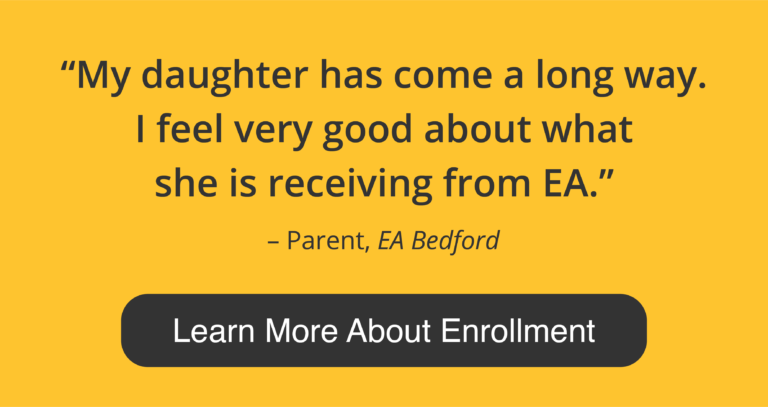Special education is a broad category that includes many different types of students. Special education departments serve students with hearing impairment, speech or language delays, visual impairments, specific learning disabilities and social-emotional issues including emotional disturbance. For students in the last category, those with behavioral health needs, alternative schools that specialize in these issues may be necessary for the student to improve.
For many parents, the idea of alternative schools for behavior problems raises many questions, such as:
- Will this school still provide the competitive academics my child needs to graduate?
- What types of interventions do behavioral health schools use to help children with social-emotional issues?
- Will my child still have the opportunity to participate in things like athletics and have the experiences they want, like school dances and student clubs?
If you’ve never had any direct experience with a behavioral health school, the thought of discussing alternative schools for behavior problems with your child’s IEP team can seem overwhelming.
In this article, we’ll talk about what students do at an alternative school for behavior problems, how this is different from the special education services they receive at their public school, and why this approach works best to treat and resolve intensive behavior issues.
An Overview of Alternative Schools for Behavioral Health
1. The Typical School Day
At your child’s public school, they most likely receive behavior or mental health interventions for a small portion of the day. At a behavioral health school like Education Alternatives, the day is divided in half, with half of the day devoted to traditional academics and half of the day devoted to mental health and group therapy.
This is a big – and important – difference. By giving students up to three hours of behavior support, EA staff have the time to work through the often complex causes of emotional and behavioral “acting out” and practice healthy behaviors.
2. Unconditional Positive Regard
EA uses the philosophy of Unconditional Positive Regard, as well as the I AM Level system, to continually reinforce everything students do, from the moment they arrive in the morning until they leave.
If behavior issues pop up during academic time, recess, or even lunch, students and teachers already have a common vocabulary for processing and responding to what’s happening. Together, they have opportunities during the school day to work through positive alternatives together.
3. Wraparound Services
Education Alternatives partners with its sister organization REACH Behavioral Health to offer students individual counseling, psychiatric care, and even family counseling both during and after school.
By removing the need for multiple trips to different offices and multiple providers, Education Alternatives streamlines every child’s treatment plan. All of the professionals who work to help clients succeed can coordinate on-site and meet directly with classroom teachers and facilitators to ensure the treatment plan is followed consistently.
Parents no longer need to do the heavy lifting of coordinating a counselor, a psychiatrist, a teacher, and administrative support – these professionals are already a team, right at their child’s school.
4. Training
Behavioral health schools like Education Alternatives require all staff members – from transportation to one-on-one aides to administrators – to learn basic behavioral health, trauma-informed care, and appropriate de-escalation.
Parents can feel confident that every individual their child interacts with from the moment they leave their home will provide safe, consistent, and outcomes-oriented care. This helps prevent mixed messages and allows students to truly internalize the behavior model.
Education Alternatives provides these training opportunities on an ongoing basis to ensure they are always top of mind for staff. EA also supports staff with experienced Building Directors as well as a clinical psychologist who can workshop the most effective responses to any ongoing issues.
5. Social and Peer Opportunities
Alternative schools for behavioral health function differently than stand-alone private schools. At EA, students can still participate in all student activities hosted by their public school. From athletics to clubs, students can remain with their friends and their community to ensure they don’t “miss out” on any of the experiences that are important parts of growing up.
At graduation time, students will earn a diploma from their home school, even though their education physically took place in whole or in part at EA. It’s helpful to think of alternative schools for behavioral problems more like an extension of their public school. EA is an alternate site that provides enhanced special education services beyond what the public school is able to deliver on campus.
6. Experience
EA schools have over 20 years of experience assisting thousands of students from over 80 school districts with exactly this type of special education. Unlike general special education programs which are designed to address a variety of learning disabilities, EA can focus on the particular issues that matter most to you and your child.
With a proven track record of success and graduation rate consistently over 90% – 40% higher than the national average for students with social-emotional issues – EA is northeast Ohio’s trusted partner for alternative education.
Contact Us About Our Alternative Schools for Behavior Problems
Ready to learn more about alternative schools for behavioral health but unsure where to start? Contact us today for more information about enrollment, or schedule a tour to experience one of our schools firsthand. We look forward to meeting you and your child.

